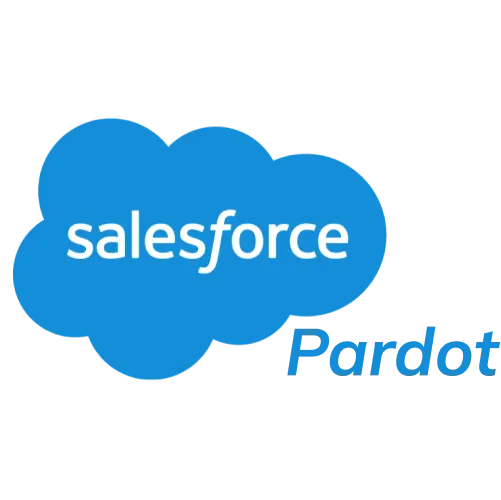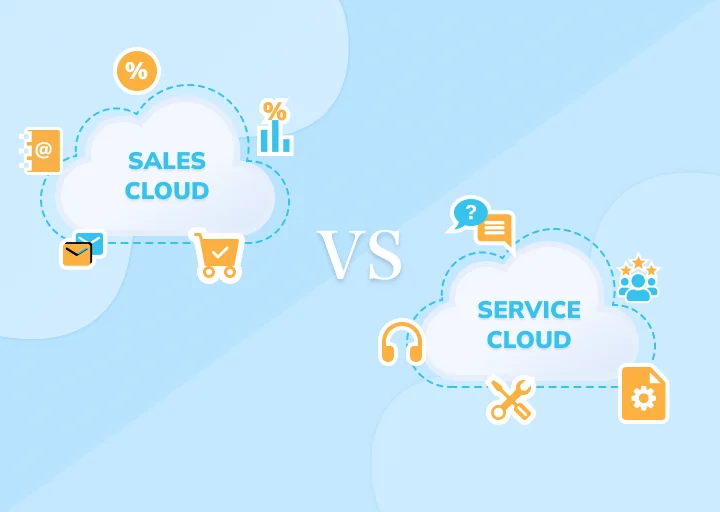Business Benefits of Salesforce Pardot
- Real-time alerts for timely connections
- Lifecycle reporting for effective deal tracking
- Streamlined Email Marketing Setup
- Intelligent lead nurturing for increased deal closures
- Engagement boost through landing pages and forms

Trusted by the Top Brands





Our Approach to Salesforce Pardot Implementation
As a dedicated Pardot agency, we assist organizations in crafting data-driven marketing campaigns, executing personalized email marketing, developing interactive forms and landing pages, implementing lead scoring and grading, automating lead assignment, tracking visitors, managing marketing files, receiving real-time sales alerts, and utilizing progressive profiling. Our Pardot consulting services ensure seamless integration and optimization tailored to your unique business needs.
Key Salesforce Pardot Features

Expand Lead Acquisition

Boost Revenue Generation

Elevate Email Marketing

Comprehensive Reporting And Analytics
Unlock Possibilities with the Right Consulting Partner
Seeking guidance on Pardot implementation or marketing automation strategies?
Let's start a conversation!Frequently Asked Questions
1. What is Pardot and what are its core functionalities?
Pardot is a Salesforce-owned B2B marketing automation platform designed to streamline campaigns, boost lead generation, and increase ROI. Core functionalities include email marketing, lead generation with forms and landing pages, lead scoring and nurturing, marketing analytics, and account-based marketing. Companies using tools like Pardot often see 10% revenue growth in six months (Forrester). At Etelligens, our certified Pardot consultants tailor its implementation to meet unique business needs and maximize ROI.
2. How does Pardot seamlessly integrate with Salesforce?
Pardot integrates with Salesforce via a bi-directional connector that syncs leads, opportunities, and engagement data in real time. The integration includes field mapping, sync triggers, and permissions setup, enabling a unified database for marketing and sales. This tight integration enhances collaboration and sales win rates by up to 38% (Salesforce). At Etelligens, we ensure connector setup aligns with data integrity best practices, eliminating silos and boosting campaign success.
3. What are the key benefits of using Pardot for B2B marketing automation?
Pardot streamlines marketing, improves lead quality, enables personalization, shortens sales cycles, and boosts ROI. With features like behavior-based nurturing, automated tasks, and real-time analytics, it helps teams scale efforts efficiently. Salesforce users report a 34% sales boost and 48% higher marketing ROI. At Etelligens, our clients experience increased conversions and reduced manual work by leveraging Pardot's full automation potential and strategic capabilities.
4. What are the key benefits of integrating Pardot with Salesforce for sales and marketing alignment?
Integrating Pardot with Salesforce creates a unified system that enhances lead management, campaign coordination, and data accuracy. It enables shared insights, closed-loop reporting, and improved lead scoring. This alignment can drive 24% faster revenue growth (SiriusDecisions). At Etelligens, we configure both platforms to support collaboration, not just data sync, fostering seamless marketing-sales cooperation and delivering better revenue outcomes.
5. How does Pardot help with lead generation and nurturing?
Pardot supports lead generation through customizable landing pages, forms, and social media tools. Its nurturing features include engagement programs, behavior-triggered emails, dynamic content, and lead scoring. This end-to-end approach increases sales opportunities by 20% (DemandGen Report). Etelligens uses Pardot to help clients design campaigns that drive awareness, engage leads, and improve conversion rates with precision targeting and automation.
6. How does data synchronization work between Pardot and Salesforce?
Pardot and Salesforce sync data via a connector that supports field mapping, custom field syncing, and conflict resolution. Records update in real time or via scheduled processes, maintaining consistency across platforms. Organizations typically set Salesforce as the data authority. Etelligens ensures sync rules are carefully planned, avoiding data loss and ensuring the integrity of both systems, as recommended by Salesforce and industry experts.
7. What are the main features of Pardot's email marketing capabilities?
Pardot’s email tools include a drag-and-drop builder, segmentation, automation, A/B testing, and personalization. It offers strong deliverability tools and engagement tracking, while Engagement Studio supports visual automation workflows. Segmented campaigns can generate 760% more revenue (DMA). Etelligens helps clients implement sophisticated, behavior-driven email strategies to improve response rates and nurture prospects effectively.
8. What types of data are shared between Pardot and Salesforce?
Pardot and Salesforce share prospect data, engagement activity, scoring, grading, campaign metrics, custom objects, and sales actions. This unified data enables better targeting, sales insights, and performance tracking. Proper sync enhances deal conversions by up to 32% (Salesforce). Etelligens ensures field mapping and permission planning are optimized for clean, actionable data flow across systems.
9. How does Pardot tracking work?
Pardot tracks user interactions via JavaScript code, cookies, email pixels, and UTM parameters. It logs website visits, form submissions, and email activity, linking anonymous behavior once a visitor is identified. This data feeds into lead scoring and engagement metrics. Companies using advanced tracking improve lead qualification by 41% (Salesforce). Etelligens ensures accurate tracking setup to support meaningful attribution and real-time engagement analysis.
10. How does Pardot help with marketing analytics?
Pardot offers marketing analytics tools like campaign reporting, email metrics, ROI dashboards, and multi-touch attribution. It enables marketers to link activities with revenue and optimize based on real data. McKinsey research shows data-driven firms are 19x more profitable. At Etelligens, we align Pardot's reporting with clients' business goals to track KPIs that truly drive growth—not just vanity metrics.



